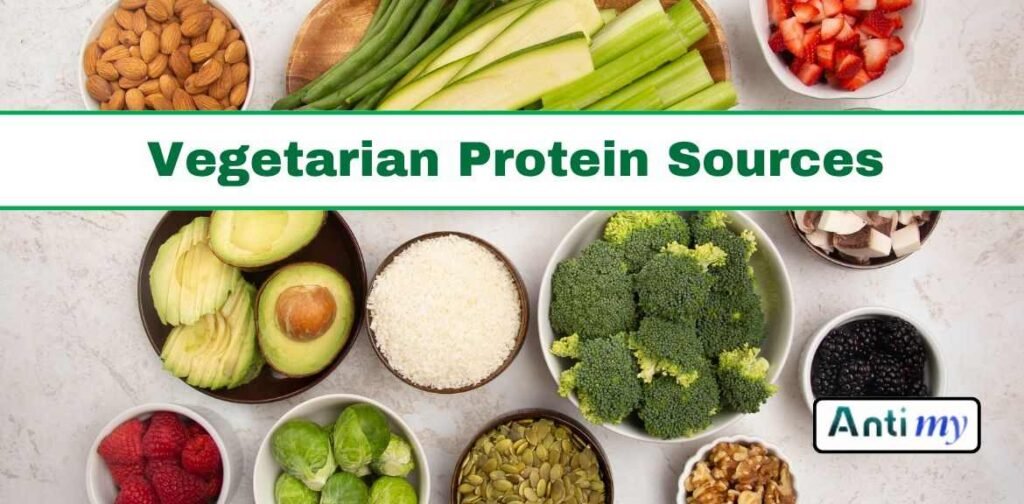In the past few years, we have seen a sudden shift towards plant-based diets. People have been largely promoting a vegan diet, towards a healthier lifestyle. In this rising trend if you were worried about protein intake for your body, then we have got you covered. We are going to help by providing complete guidance towards choosing Vegetarian Protein Sources, a rich nutrient-based diet. So keep your ways till the end with us to understand the complete ways.
Understanding the Essence of Complete Protein
We all are aware that protein is the major source for building a healthier lifestyle. A complete protein intake is fulfilled only when you, have all the nine essential amino acids in the required quantities. The proper and healthy consumption of food is essential for proper body functioning. With balanced protein consumption, you can boost tissue formation, immune function, enzymes, and other hormones. Thereby leading to a healthier lifestyle on an overall basis.
Vegetarian Protein Sources
In the below section, we are going to cover and provide a comprehensive detail on Vegetarian Protein Sources. To know about them give a thorough read to the provided information.
Rice & Beans
Rice and beans are a heavenly combination, completely perfect for good protein intake. You can use both brown or white rice, though it lacks lysine it has a high percentage of methionine. While on the other hand, beans are high on lysine and are also high on methionine. Therefore, combining these two is a great way to achieve essential amino acids.
Intake: 250 grams of rice and beans contain 12 grams of protein and 10 grams of fiber. Rice and beans can be seamlessly included in your meal choices, whether for lunch or dinner.
Quinoa
If you wondering what is quinoa, then let me tell you that it is similar to couscous but has a crunchy and nutty taste. This ancient grain is a pseudo-cereal and is gluten-free. This is high in protein, but aside from this it also has large amounts of magnesium, iron, zinc, and fiber. It can be cooked not only with rice but also can be cooked with any plant-based milk for a creamy texture.
Intake: Eating a single cup or 200gm of cooked quinoa will give you around 8 grams of protein.
Tofu
It is a protein option made from plants. Tofu is made by curdling soy milk to form blocks with different textures such as silken, firm, and extra-firm. When cooked, it can easily take on the taste of other ingredients because of its mild flavor.
Intake: Ingesting around 100gm of tofu gives you 8gm of protein. It also offers 15% of the recommended daily intake (DV) of calcium, along with lesser quantities of potassium and iron.
Tempeh & Edamame
Plant-based protein choices derived from plants. Tofu is created by coagulating soy milk into blocks that have varying textures like soft, solid, and very solid. Its subtle flavor makes it easy to absorb the flavors of other ingredients when it is cooked.
Intake: Eating about 100gm of tempeh can supply around 11gm of protein as well as fiber, iron, potassium, and calcium. Likewise, 100 grams of edamame contains 8 grams of protein as well as fiber, iron, potassium, vitamin C, and calcium.
Pita & Humus
Being an Indian You might have never came across Pita and Humus. But these two are excellent source of protein. So you must consider about including them in your diet.
Intake: To provide a gist, one medium sized or say 57 gram of whole wheat along with 2 tablespoon humus. Carries approximately 7 grams of protein.
Buck Wheat
By the name of this food if you are confusing it with a cereal then, let me tell you that its not. Buckwheat is a sedd that carries high amount of noodles. It also rich in other minerals like phosphorous, manganese coppper, etc.
Intake: 170 grams of buckwheat carries around 6gm of protein.
Hemp Seed
Referred to as a hemp heart is a kind of highly nutritious nut. These nuts are high in fatty acids, linolic acid or also knwon as omega-6, and alpha linolic or Omega-3.
Intake: Having 30 grams of raw hemp seed will provide you with 10 gram of protein. Thereby also providing a 15% Daily Value.
Spirulina
It is a blue-green algae species, is favored by vegans and vegetarians. Spirulina powder is the top choice for individuals who incorporate it into their smoothies, granola bars, soups, and salads to enhance their nutritional intake. You can get a good amount of antioxidants, and source of several B vitamins, copper, iron.
Intake: With 7gm of spirulina powder can provide 4gm of protein with all the nine essential amino acids.
Conclusion
In this blog we have covered, Vegetarian Protein Sources. By reading the provided information you will get aware of the healthy food habits. You can follow them to make you lifestyle more healthier.
Disclaimer: All the details mentioned here are based on our research and shout not be considered as words of dietician. Instead, to get complete and reliable health guidance must visit a dietician.

